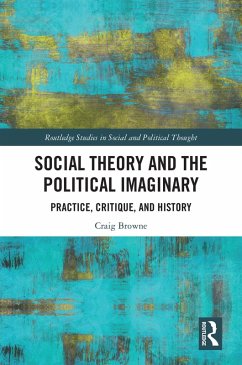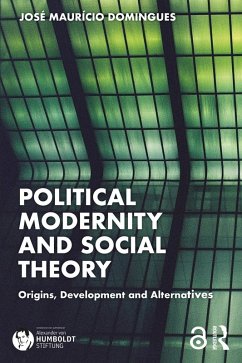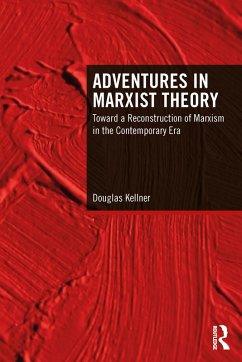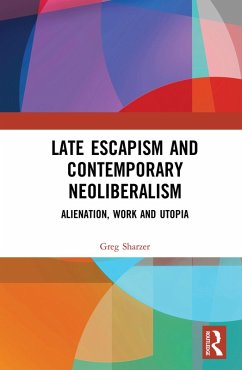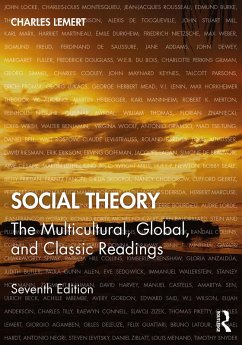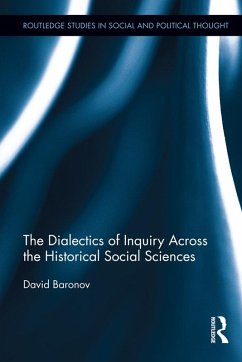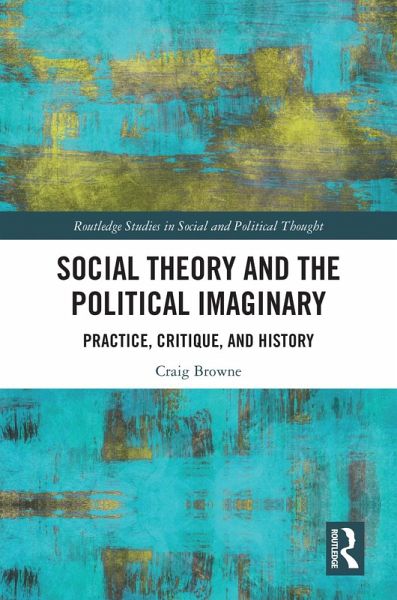
Social Theory and the Political Imaginary (eBook, PDF)
Practice, Critique, and History
Versandkostenfrei!
Sofort per Download lieferbar
42,95 €
inkl. MwSt.
Weitere Ausgaben:

PAYBACK Punkte
21 °P sammeln!
Social Theory and the Political Imaginary: Practice, Critique, and History is an innovative work of synthesis, critique and analysis. It presages a social theory perspective that recognizes the constitutive significance of the political imaginary in modernity. Social theory's current dilemmas are explored through a series of interlinked assessments of recent substantial strands, specifically, Luc Boltanski's pragmatism and the wider 'practical turn,' the perspectives of multiple modernities and global modernity, the outlook of social and political imaginaries and critical social theory. The po...
Social Theory and the Political Imaginary: Practice, Critique, and History is an innovative work of synthesis, critique and analysis. It presages a social theory perspective that recognizes the constitutive significance of the political imaginary in modernity. Social theory's current dilemmas are explored through a series of interlinked assessments of recent substantial strands, specifically, Luc Boltanski's pragmatism and the wider 'practical turn,' the perspectives of multiple modernities and global modernity, the outlook of social and political imaginaries and critical social theory. The political imaginary's reconfigurations are evident in the tensions of global modernity, and original social theory interpretations are advanced of landmark instances of twenty-first-century social contestation: the Hong Kong protests conditioned by threats to civil freedoms and a lack of self-determination, the radical democratic practices of anti-austerity movements contesting capitalist globalization's injustices and the inverted cosmopolitanism of the 2005 French Riots challenging the oppression and inequalities experienced by immigrant communities and marginalized youth. These incisive applications of social theory and complementary conceptual innovations illuminate the vicissitudes of social struggles, political forms and theoretical perspectives. Similarly, reflection on the political imaginary is found to enable a necessary rethinking of the interrelationship of practice, critique and history.
Dieser Download kann aus rechtlichen Gründen nur mit Rechnungsadresse in A, B, BG, CY, CZ, D, DK, EW, E, FIN, F, GR, HR, H, IRL, I, LT, L, LR, M, NL, PL, P, R, S, SLO, SK ausgeliefert werden.




